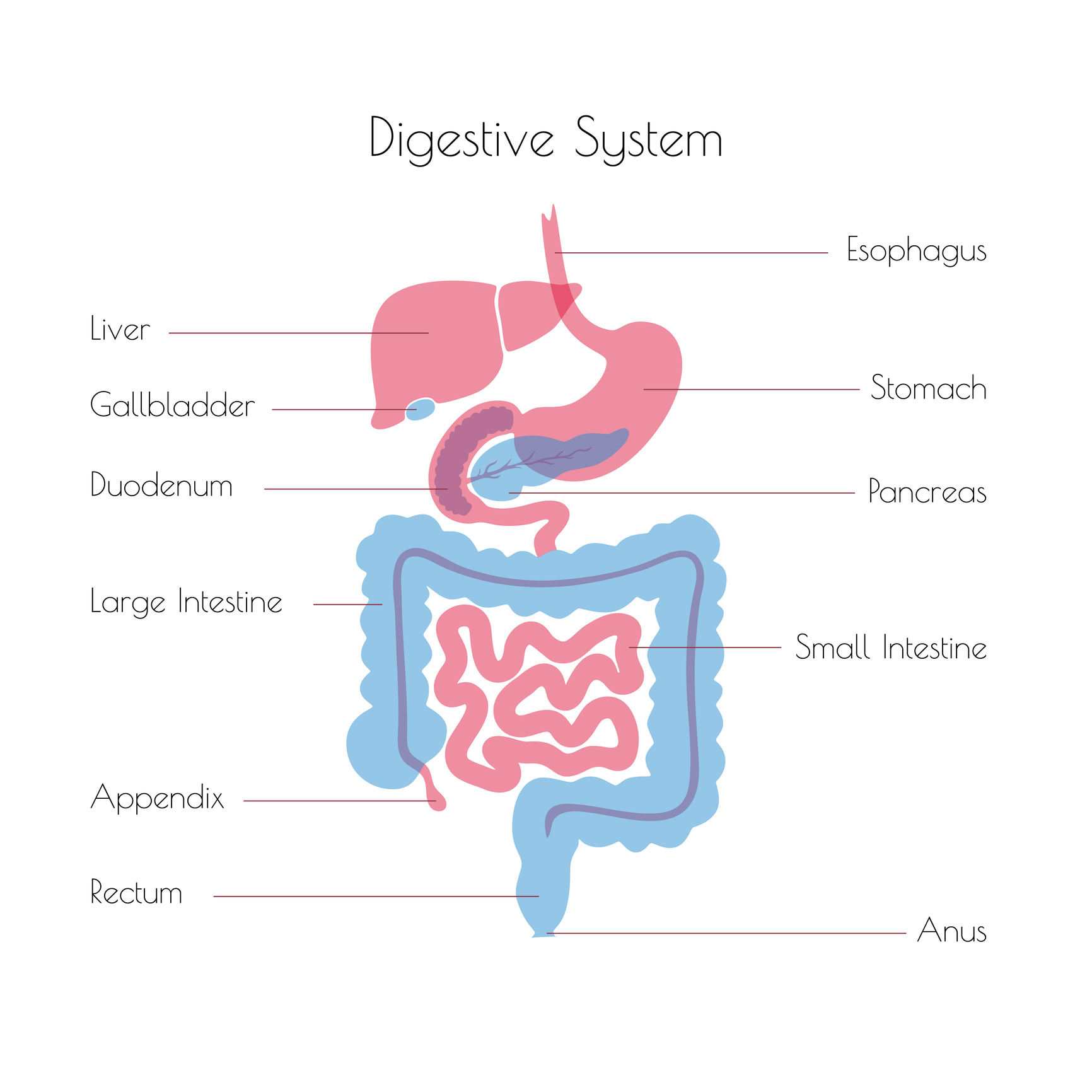Insufficient Digestive Enzymes Could Be Causing Malabsorption and Malnutrition

By Joy Stephenson-Laws, JD, Founder
“That’s a lot to digest!”
When someone makes this statement, they are basically saying that’s a lot of information to absorb. When it comes to our actual digestive systems, absorption is critical. Proper digestion allows us to absorb food and then turn it into those precious nutrients we all need.
“Digestion is important because your body needs nutrients from the food you eat and the liquids you drink in order to stay healthy and function properly, reports the Cleveland Clinic.
“Nutrients include carbohydrates, proteins, fats, vitamins, minerals and water. Your digestive system breaks down and absorbs nutrients from the food and liquids you consume to use for important things like energy, growth and repairing cells."
The digestive system is an intricate machine consisting of many organs including the mouth, esophagus, stomach, pancreas, liver, gallbladder, small intestine, large intestine and anus. When we digest food, the process begins at the mouth and ends at the anus. Between these two organs a lot happens during the digestive journey.
Digestion begins in the mouth when we chew our food into pieces, however, it’s valid to say that digestion begins as soon as we smell or see something appetizing. This triggers the salivary glands.
“Your saliva mixes with the food to begin to break it down into a form your body can absorb and use,” (Cleveland Clinic).
There’s that key word again - absorb.
We swallow our chewed food, which brings it into the esophagus. Here is where many muscular contractions occur to get the food into the stomach. In the stomach, we trigger the key players of the digestive system - digestive enzymes.
“Your stomach, small intestine and pancreas all make digestive enzymes. The pancreas is really the enzyme ‘powerhouse’ of digestion. It produces the most important digestive enzymes, which are those that break down carbohydrates, proteins and fats [macronutrients],” according to John Hopkins Medicine.

Let’s go over some of the main digestive enzymes:
- Pepsin (produced in the stomach, breaks down proteins)
- Amylase (made in the pancreas and mouth, breaks down complex carbohydrates)
- Lipase (produced in the mouth, stomach and pancreas, breaks down fats)
- Protease (made in the pancreas, breaks down proteins)
- Lactase (made in the small intestine, breaks down lactose)
- Sucrase (made in the small intestine, breaks down sucrose)
“Some people don’t have enough digestive enzymes, or their bodies don’t release the enzymes as they should. This means they can’t break down certain foods and absorb nutrients,” reports John Hopkins Medicine.
I recently discovered that I am one of those people. After taking a nutrition test, which is a comprehensive blood and urine test that assesses the body’s need for vitamins, minerals, fatty acids, digestive enzymes and so much more, my results revealed that I am deficient in certain digestive enzymes.
Because digestive enzyme deficiency can cause nutrient absorption issues, this can then lead to malnutrition. I am so grateful for this test. I eat a very nutrient-rich, mainly plant-based diet, however, if my body cannot properly absorb all of the nutrients, then I am not fully benefiting from my healthy diet and optimizing one of the biggest preventative methods for fighting disease - diet.
Fortunately, I was able to address my issues by taking digestive enzyme supplements (per the advice of Dr. Pauline Jose, my competent healthcare practitioner). Be aware that there are several digestive enzyme supplements you can easily buy online or at your local store, but you really want to seek medical advice first and, of course, be tested to see if you lack any digestive enzymes.
I did not experience many symptoms except occasional bloating (which, again, is why testing is invaluable), but if you are someone who regularly experiences gastric discomfort, don’t blow this off as that’s just how your body reacts. Symptoms of having a digestive enzyme deficiency may include:
- Gas
- Bloating
- Abdominal pain
- Nausea
- Heartburn
- Diarrhea
- Weight loss
- Fatty or oily stools
- Loss of appetite
- Fatigue
There doesn’t appear to be much data about how many Americans have digestive enzyme deficiencies. However, a recent study from the American Gastroenterological Association (AGA) found evidence suggesting that nearly 40 percent of Americans “have stopped routine activities in the last year due to uncomfortable bowel symptoms, including exercising (19%), running errands (17%), and spending time with family and friends (16%),” according to this report discussing the study.
“Despite this disruption, many people remain hesitant to discuss their symptoms with a medical professional. In fact, 1 in 3 say they would only discuss their bowel symptoms if their doctor brought it up first.”
I get it. Talking about poop and gas is not exactly sexy, but I bet many of our discomfort would be resolved if we discovered and addressed digestive enzyme deficiencies.
Exocrine pancreatic insufficiency (EPI), which occurs when people do not make enough digestive enzymes in the pancreas, is a specific deficiency that we should especially be mindful of.
“The prevalence of EPI in the general population is unknown. It is most commonly associated with diseases of the exocrine pancreas, being a common late-stage manifestation of CP [chronic pancreatitis]. However, as pancreatic function and pancreatic secretion are not synonymous, EPI can be due to extrapancreatic diseases (Table 1) affecting regulatory signals and/or altering the complex lipase–food–duodenal juice mix-up and interaction,” according to the National Institutes of Health (NIH).
Possible causes of digestive enzyme deficiencies:
- Having undergone certain surgeries such as gastric bypass surgery.
- Certain genetic disorders.
- Chronic pancreatitis (and any condition that may affect the pancreas).
- Pancreatic cancer.
- Celiac disease.
- Diabetes (more than 30 million Americans have diabetes).
- Cystic fibrosis.
- Inflammatory bowel syndrome (IBS).
- Older age. “As you age, digestive secretions decrease—in particular, gastric acid and pancreatic enzymes,” according to Dr. Frank Lipman.
It is very important to note that along with gastric discomfort and malnutrition, digestive enzyme deficiencies may also cause osteoporosis. If you are not properly absorbing nutrients, such as calcium, that keep bones strong and healthy, then this could lead to weak brittle bones.
Our bodies are very complex, amazing machines. It’s up to us to identify any kinks in the machine and be proactive. Take advantage of comprehensive nutrient testing. Eating healthily, of course, is key in promoting a long, quality life. In addition to this, make sure your body is functioning at its best in order to take advantage of all the good effort you may be putting towards your diet. If you discover a digestive enzyme deficiency, you can address any possible underlying health issues and help your deficiency with quality supplements recommended by your doctor.
At the end of the day, it’s not just about what we eat but also how well we absorb what we eat.
Enjoy your healthy life!
Disclaimer: This article is not intended to provide medical advice. Please consult with your doctor or another competent healthcare practitioner to get specific medical advice for your situation.
The pH professional health care team includes recognized experts from a variety of health care and related disciplines, including physicians, attorneys, nutritionists, nurses, and certified fitness instructors. This team also includes the members of the pH Medical Advisory Board, which constantly monitors all pH programs, products, and services. To learn more about the pH Medical Advisory Board, click here.







